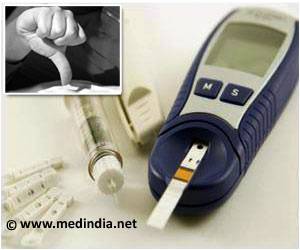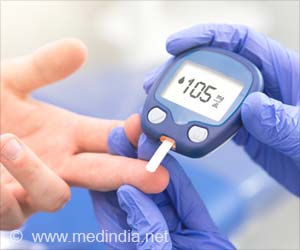The new diabetic drug preserves critical brain fucntion and slows down the progression od Parkinson’s disease.

- Parkinson’s Disease (PD) is a progressive motor system disorder arising due to loss of dopamine producing brain cells.
- The underlying mechanisms of PD and diabetes are similar at the molecular level and both respond similarly to insulin sensitizers like MSDC-0160.
- MSDC-0160 preserves critical brain function and effectively impedes the progression of PD.
Parkinson’s Disease (PD)
It is a neurodegenerative condition that belongs to the class of conditions called motor system disorder. It arises as a result of loss of dopamine-producing brain cells.
Parkinson's disease affects around 7-10 million people worldwide, including an estimated 1 million Americans, and these numbers are expected to increase dramatically as the average human lifespan increases.
PD affects people over the age of 60 years. The disease progresses slowly with initial symptoms being tremor of limbs, stiffness, slowness of movement and impaired balance. It also affects the individual emotionally.
Treatment so far
Brain cells use levodopa to make dopamine and replenish the decreasing supply. But a common side-effect of this drug is involuntary movement called dyskinesias.
In some cases, surgery may be appropriate if the disease does not respond to drugs. A technique called deep brain stimulation (DBS) has now been approved by the U.S. Food and Drug Administration.
In DBS, electrodes are implanted into the brain and connected to a small electrical device . DBS can reduce the need for levodopa .
MSDC-0160
MSDC-0160 was developed Kalamazoo, Michigan-based Metabolic Solutions Development Company (MSDC) to treat type 2 diabetes.
In 2012, Brundin recognized the potential of the drug because of its mode of action, proven safety in people, local availability.
Tom Isaacs, a co-founder of The Cure Parkinson's Trust , says MSDC-0160 represents one of the most promising treatment the Trust's international consortium has seen to date.
"Our scientific team has evaluated more than 120 potential treatments for Parkinson's disease, and MSDC-0160 offers the genuine prospect of being a breakthrough that could make a significant and permanent impact on people's lives in the near future," says Isaacs. "We are working tirelessly to move this drug into human trials as quickly as possible in our pursuit of a cure."
Common Underlying Mechanisms
Though Parkinson's disease and diabetes have vastly different symptoms with unrelated patient outcomes, researchers discovered that they share many underlying mechanisms at the molecular level and respond similarly to a new class of insulin sensitizers like MSDC-0160.
The idea to use MSDC-0160 for PD stems from a recent revelation that Parkinson's may originate in the body's energy metabolism.
The new drug regulates mitochondrial function in brain cells and restores the cells' ability to convert basic nutrients into energy.
As a result the ability of the cells to handle potentially harmful proteins is normalized, which reduces inflammation and prevents nerve cell death.
Future Scope
"This is an immensely promising avenue for drug discovery," says Brundin. "Whatever the outcome of the upcoming trial for Parkinson's, we now have a new road to follow in search of better treatments that cut to the root of this and other insidious diseases."
If MSDC-0160 is successful in human trials, it would be the first therapy to treat PD and slow its progression. This will help in improving quality of life and preventing cognitive decline. It may also reduce or delay the need for medications that can have debilitating side effects.
The researchers also hope to test the drug in other conditions like Lewy body dementia and other cognitive decline conditions, such as Alzheimer's disease.
References
- What is Parkinson’s Disease - (https://www.ninds.nih.gov/Disorders/All-Disorders/Parkinsons-Disease-Information-Page)
- Patrik Brundin et al. Mitochondrial pyruvate carrier regulates autophagy, inflammation, and neurodegeneration in experimental models of Parkinson’s disease. Science Translational Medicine; (2016) DOI: 10.1126/scitranslmed.aag2210
Source-Medindia














